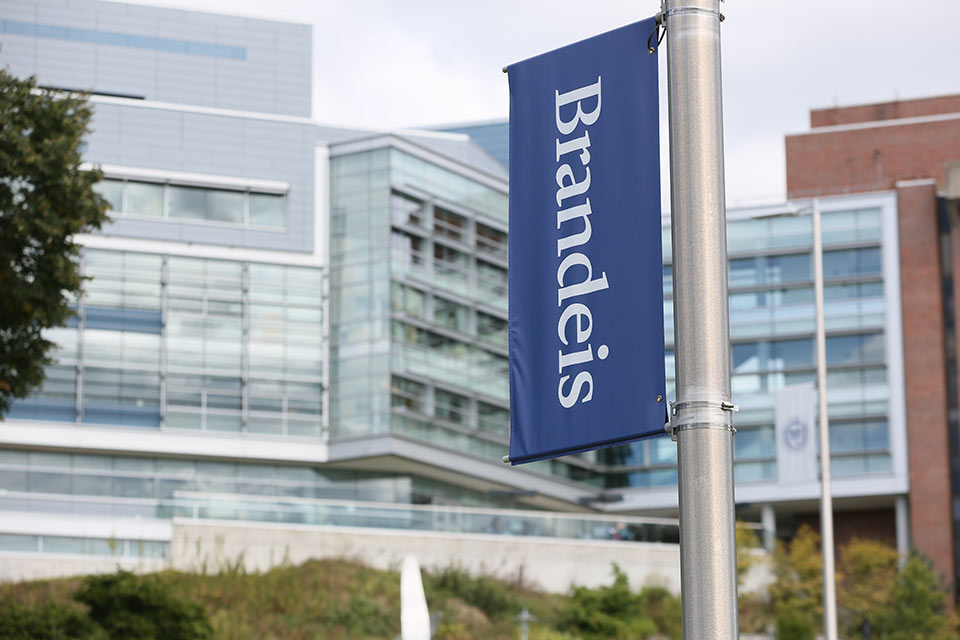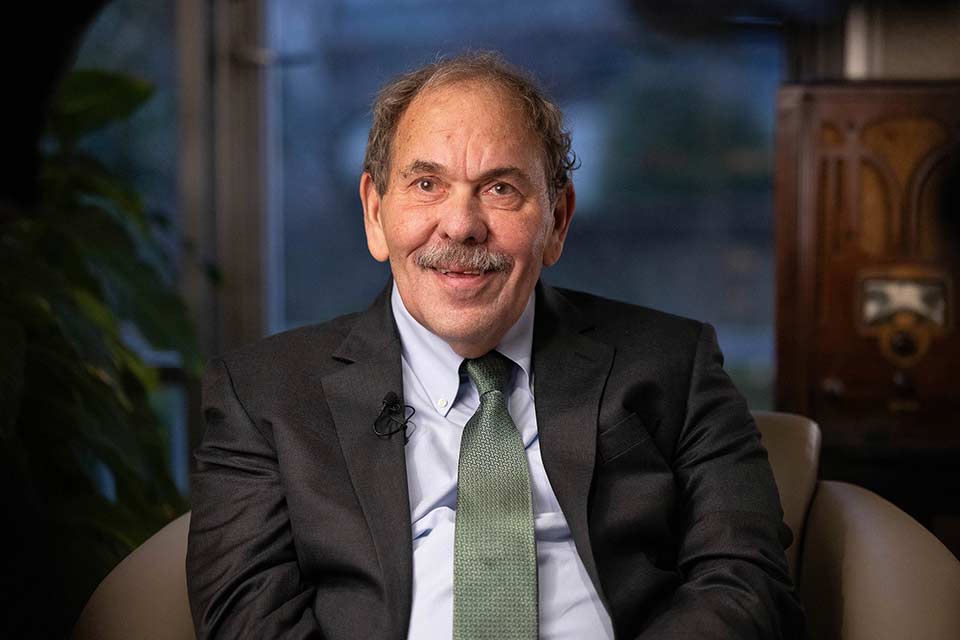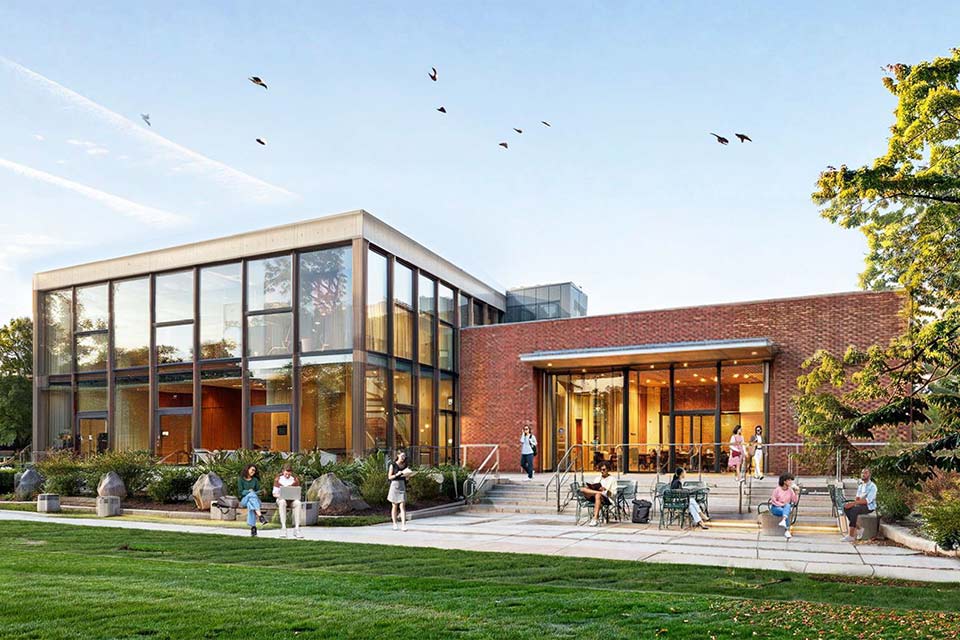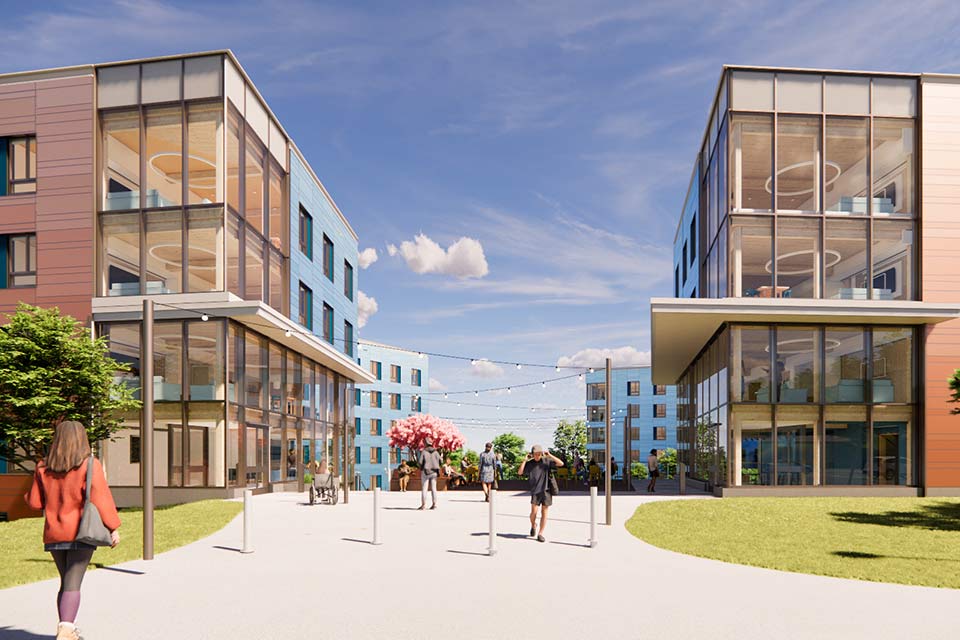Brandeis University announces the launch of four new academic schools
Reshaping the academic enterprise will prepare Brandeis students to apply the liberal arts to better activate their learning and be career ready

August 4, 2025
Brandeis University announced a bold academic realignment, establishing four new schools that integrate its graduate professional programs into its liberal arts curriculum. By infusing professional education into the liberal arts, Brandeis is pioneering a first-of-its-kind approach designed to connect rigorous academic learning with practical, career-focused applications. This structural transformation reflects Brandeis’ commitment to preparing students to succeed, thrive, and think creatively to create new knowledge in an increasingly digital, AI-driven, and interconnected global economy.
“We are creating a structure that reflects how the world is changing,” said President Arthur Levine. “Brandeis students need both deep academic knowledge and the ability to apply it. What’s unique about this effort is that our highly successful and recognized professional programs will now be incorporated into the undergraduate experience.”
The new organization builds on Brandeis’ strengths as a research university rooted in the liberal arts. Created in close partnership with faculty, it brings related fields together, encourages new approaches to teaching and research, and gives students more ways to connect what they learn to the world beyond the classroom. As the foundation for both undergraduate and graduate education, the four schools offer a connected, flexible academic experience that prepares students for a wide range of careers and advanced study.
Carol Fierke, Provost and Executive Vice President for Academic Affairs, emphasized the academic potential of the new model: “This realignment reflects the creativity and commitment of our faculty to shape a Brandeis education that’s both intellectually rigorous and deeply relevant. These new schools create a structure that makes it easier to collaborate across fields and ensure that every student can connect their learning to the world around them. Taking this novel approach demonstrates Brandeis’ continued leadership in educational innovation.”
The School of Arts, Humanities and Culture, led by Founding Dean Harleen Singh, explores how humans express, interpret, and shape the world through language, literature, philosophy, the arts, and culture. Through both scholarly analysis and creative practice, students will gain the tools to understand the human experience across time and place—and to contribute meaningfully in fields ranging from the arts and business to academia, law, journalism and more.
The School of Business and Economics, headed by Founding Dean Linda Bui, prepares students to lead in a global economy shaped by data, innovation, and rapid change. With programs grounded in analytical rigor and ethical decision-making, the school equips future leaders in business, finance, economics, public policy, and entrepreneurship with both strategic perspective and practical tools.
The School of Science, Engineering and Technology, under the leadership of Founding Dean Susan Birren, powers scientific exploration and discovery through interdisciplinary programs, including a new engineering science major, hands-on scientific research, and a distinctly liberal arts approach. Students work across disciplines—and with distinguished faculty—to tackle urgent challenges. They are unraveling the building blocks of matter, using AI and machine learning to understand the brain and delving into active matter in living cells and non-biological systems. From health and sustainability to AI and technological innovation, Brandeis science prepares students for careers in research, technology and biotechnology, engineering, medicine, and beyond.
The School of Social Sciences and Social Policy, led by Founding Dean Sara Shostak, examines how individuals, communities, and systems interact—and how pressing social issues can be addressed through policy, research, and civic engagement. It is home to the Heller School for Social Policy and Management, one of the nation's top graduate schools in social policy and health policy and management. Connecting the professional school and undergraduate programs enables all students to explore complex topics such as inequality, governance, and public health, ultimately translating their insights to high-impact careers in fields such as public health, education, human rights, journalism and law.
To support students at every stage of their academic journey, Brandeis has also established two new leadership roles: Jeffrey Shoulson will serve as Vice Provost for Undergraduate Affairs and Charles Golden will serve as Vice Provost for Graduate Affairs. Working closely with the academic deans, these offices will guide advising, program development, and academic policy to ensure that students benefit from a cohesive, forward-looking education across disciplines and degree levels.
This shift marks a pivotal step in Brandeis’ broader strategy to innovate its approach to higher education, building from the university’s founding Jewish values of reverence for learning, openness to all, and a commitment to repairing the world. The new academic structure received strong faculty endorsement earlier this year, reflecting a shared commitment to innovation and student success. It follows the recent announcement that President Arthur Levine will continue to lead the university through the next phase of its strategic transformation.


